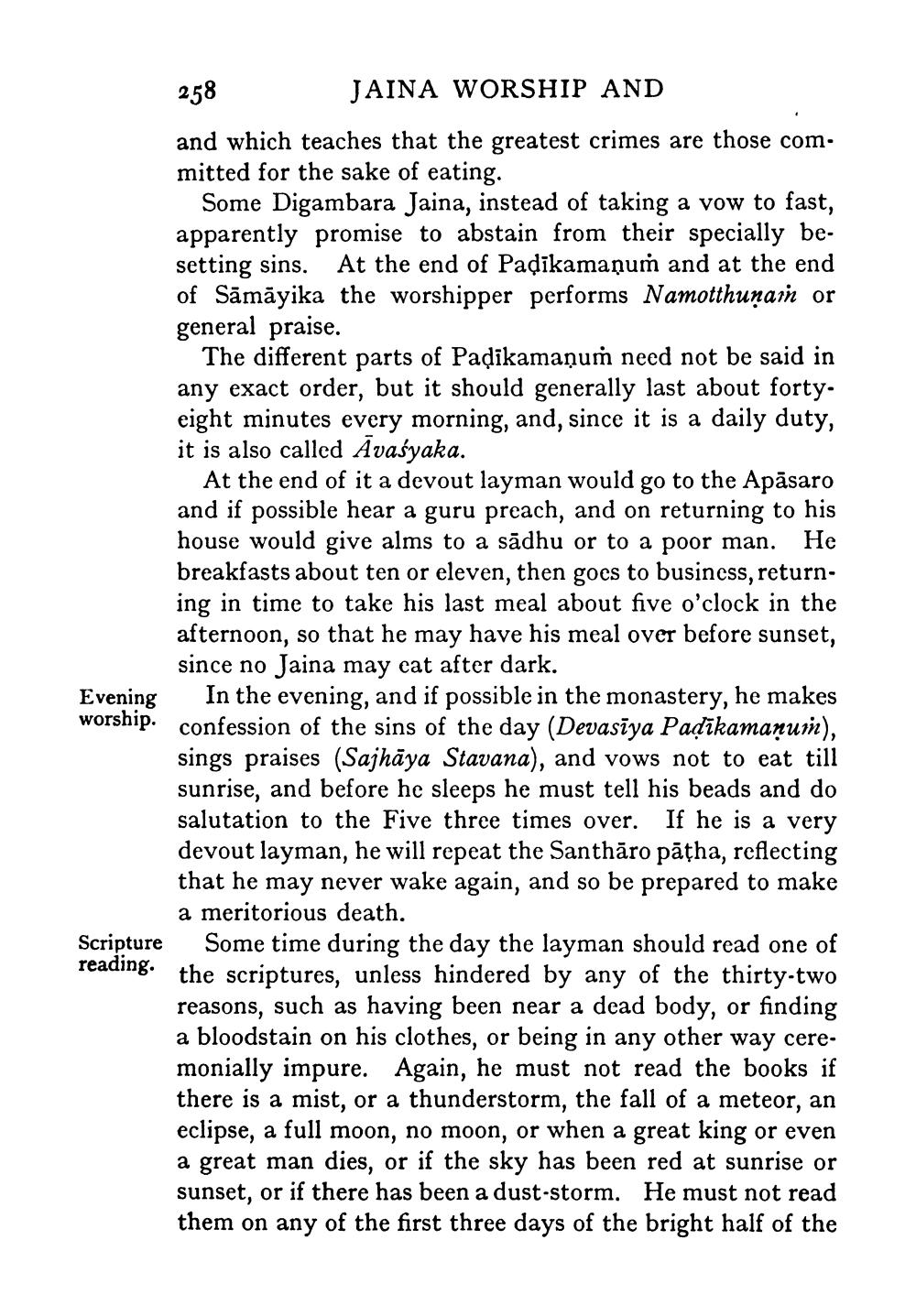________________
258
TAINA WORSHIP AND and which teaches that the greatest crimes are those committed for the sake of eating.
Some Digambara Jaina, instead of taking a vow to fast, apparently promise to abstain from their specially besetting sins. At the end of Padīkamaņuṁ and at the end of Sāmāyika the worshipper performs Namotthunain or general praise.
The different parts of Padikamaņuṁ need not be said in any exact order, but it should generally last about fortyeight minutes every morning, and, since it is a daily duty, it is also called Avašyaka.
At the end of it a devout layman would go to the Apăsaro and if possible hear a guru preach, and on returning to his house would give alms to a sādhu or to a poor man. He breakfasts about ten or eleven, then goes to business, returning in time to take his last meal about five o'clock in the afternoon, so that he may have his meal over before sunset,
since no Jaina may cat after dark. Evening In the evening, and if possible in the monastery, he makes worship.
confession of the sins of the day (Devasīya Padīkamanum), sings praises (Sajhāya Stavana), and vows not to eat till sunrise, and before he sleeps he must tell his beads and do salutation to the Five three times over. If he is a very devout layman, he will repeat the Santhāro pāțha, reflecting that he may never wake again, and so be prepared to make
a meritorious death. Scripture Some time during the day the layman should read one of reading.
the scriptures, unless hindered by any of the thirty-two reasons, such as having been near a dead body, or finding a bloodstain on his clothes, or being in any other way cere. monially impure. Again, he must not read the books if there is a mist, or a thunderstorm, the fall of a meteor, an eclipse, a full moon, no moon, or when a great king or even a great man dies, or if the sky has been red at sunrise or sunset, or if there has been a dust-storm. He must not read them on any of the first three days of the bright half of the




